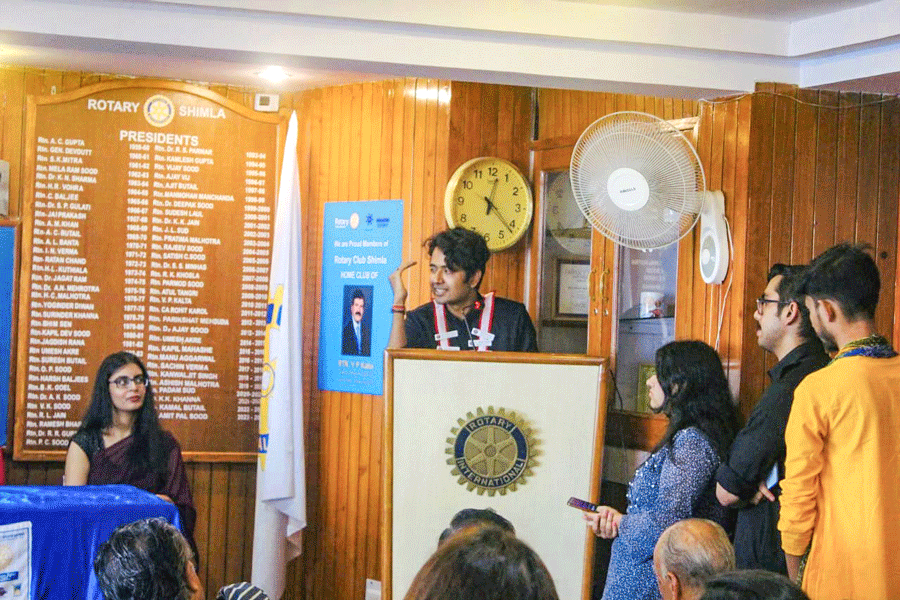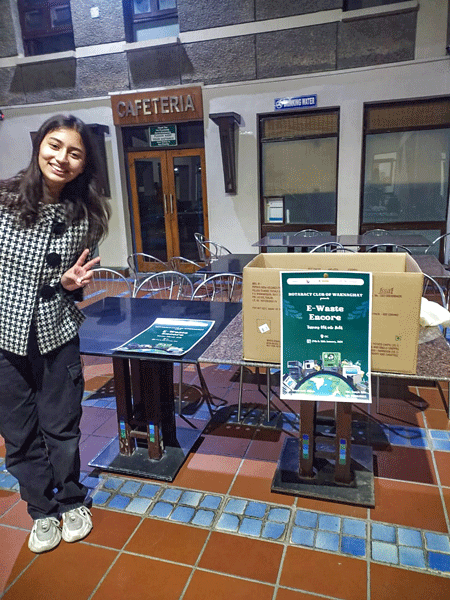E-waste collection drive in Himachal
As digital technology grows in leaps and bounds with our increasing screen time, RC Waknaghat, RID 3080, has earned praise from government officials and Himachal Pradesh State Pollution Control Board (HPSPCB) for its efforts to create awareness on the urgent need to recycle electronic waste. Project E-Waste Encore, a maiden initiative, was held in two phases. “First, we conducted a two-hour zoom meet in which around 200 college students and members of the public from different walks of life took part and expressed their concern about the menace of electronic waste,” says Swastik Jha, club president.

The 17-year-old institution-based club for students of Jaypee University of Information Technology at Waknaghat, a small town 20km from district capital Solan in Himachal Pradesh, has taken up the e-waste drive as “we have easy access to computers, PC motherboards, IT peripherals and other digital gizmos including high-end mobile phones and chargers. As we are exposed to these electronic devices, it has harmful effects on our mind and body,” explains Jha. A recycling company, Karo Sambhav had pitched in three executives to speak on the “toxic effects of e-waste that pollutes the soil and water at the online campaign.”
From the club, Jha, Rtrs Roodransh, Saurav and Sanya gave a talk on “ways to resolve the pollution caused by e-waste and revive the earth to its healthy state.”
Following the zoom interaction, the club has put up two collection boxes at its college hostel and academic premises for depositing old computers and other disused electronic items. “In three days, we collected 20kg of e-waste, and a team from Karo Sambhav came and picked up these harmful gadgets from our college,” says Jha.
Down memory lane
In a first-of-its-kind initiative in Rotaract, they are compiling a book that will recall the life experiences of senior citizens living in old age homes across the country. “So far, we had contacted 25 old age homes and asked the inmates to either write down their life experience with interesting anecdotes or just narrate them for our Rotaractors to write it down. We had a draft of 22 real life stories from 14 states in India and we have a target to reach at least 20 states, so that our ‘life book’ will reflect the rich diversity of our country,” he explains.

Called Project Tajurba Kehta Hai (experience speaks), Flairs, Delhi, has agreed to publish the new book with the same name (TKH) online through Amazon. The aim of the book compilation is to educate the young generations with the varied experiences of senior citizens “so that they could derive the knowledge and wisdom by reading it and strive for a bright life ahead.”
Their parent Rotary, RC Shimla, has been a pillar of support for the Rotaractors. “Club president Amit Sood is briefed on our projects and we also send monthly activity report to him as a regular feedback. He appreciates our work and offers guidance as well as monetary support, if needed,” says Jha. Studying final year BE (Computer Science), he says, “being a Rotaractor for four years is like enjoying every bit of living in your sweet home. Once I became the international service director of the club in the third year, I began to put my heart and soul into my Rotaract activity.”
Will he continue in Rotaract after leaving college? “Wherever my job takes me, I will become a member of a Rotaract club in that locality. Once I start earning and get settled in my career, I will join a Rotary club of my choice,” he smiles.
